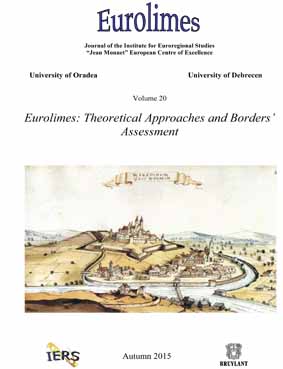The Long Road to Interreg: The Role of European Parliament in the Institutionalization of Cross-border Cooperation in Europe (1958-1990)
The Long Road to Interreg: The Role of European Parliament in the Institutionalization of Cross-border Cooperation in Europe (1958-1990)
Author(s): Silvia SassanoSubject(s): Politics / Political Sciences
Published by: Editura Universitatii din Oradea
Keywords: Cross-border cooperation; Border regions; Borders; European integration; Interreg; European regional policy; European Parliament; EEC/EU
Summary/Abstract: Territorial cooperation has become one of the most important andsuccessful activities of the European Economic Community/European Union (EEC/EU),first within Regional and Cohesion policy and then also in the framework of theEnlargement and Neighbourhood policy. The transformation of regional cross-bordercooperation from a spontaneous local phenomenon into a structured European programhas taken a long time. The process started in 1958, when European institutions, createdwithin the framework of EEC, began to care about European border regions and to takeinto consideration the importance of cross-border cooperation for these territories and forEuropean Community itself, and first came to fruition in 1990 with the creation of Interreg,the first financial program addressed to territorial cooperation. Many actors haveparticipated in the achievement of this important European activity, both institutional andnon-institutional actors at European, national, regional and local level. The focus of thispaper is on the EEC/EU institutional level, and in particular on the actions of the EuropeanParliament/EP, which has played a very important role in the development and theinstitutionalisation of regional cross-border cooperation in Europe. In order to betterillustrate how this process has gradually improved as a result of the commitment of all theactors involved and of the evolution of the European integration process, this paperpresents a “periodization” of the considered historical period, namely 1958 to 1990. In themost of the cases the a quo and ad quem terms of each of the four phases that the periodhas been divided into correspond to important turning points in the evolution of theEuropean regional policy, which represents the political-institutional context of referencewithin which “European cross-border policy” has developed.
Journal: Eurolimes
- Issue Year: 2015
- Issue No: 20
- Page Range: 145-164
- Page Count: 20
- Language: English
- Content File-PDF

